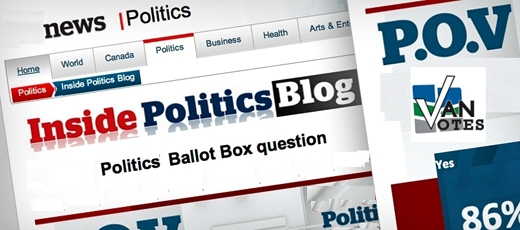
Voter participation in Vancouver civic elections is abysmal.
In 2008, when Vision Vancouver was elected to its first majority term, the voter turnout rate was 30.79%. Of the 403,663 registered Vancouver voters, the office of the Chief Elections Officer at City Hall reported only 124,285 Vancouver residents filled out a ballot, a decrease of 1.66% from the 32.45% turnout for the 2005 municipal election.
In 2011, after Vision Vancouver spent $657,000 in a massive television ad buy the final five days of the campaign (bringing out an extra 10,000 votes for the party, according to tracking results released internally by Strategic Communications, Vision’s pollster of record), voter turnout registered at 34.57%, mainly as a consequence of that Vision ad blitz, which alerted a sleepy Vancouver populace to the pending civic election polling day.
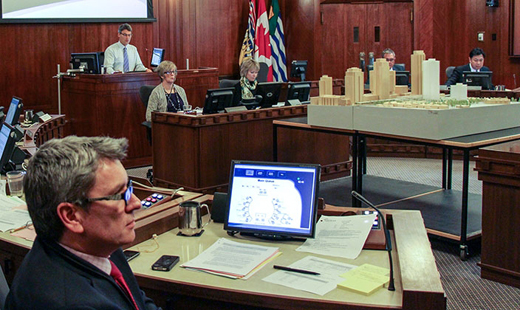
Recently, at an all-candidates meeting, current Non-Partisan Association city councillor George Affleck — who, in 2014, is seeking voter support for a second term at City Hall — expressed wonderment at the low turnout rate.
“We’re the level of government that is closest to you. Unlike the senior levels of government, you can actually reach out and touch us, you can put your hand on my shoulder. As a city councillor I am more available to you as an elected representative than would ever be the case with your federal or provincial representative. What Council, or Park Board, does day-in, day-out affects the quality of your life. You have a stake in the outcome of the election, you can determine the kind of city that you want going forward, and play a role in helping determine what civic priorities will be in the next term of your local government.”
Yet, nine days out from election day — Saturday, November 15th — insider polling for Vancouver’s two major political parties indicates a woeful level of citizen engagement, and a probable 28% voter participation rate this year.
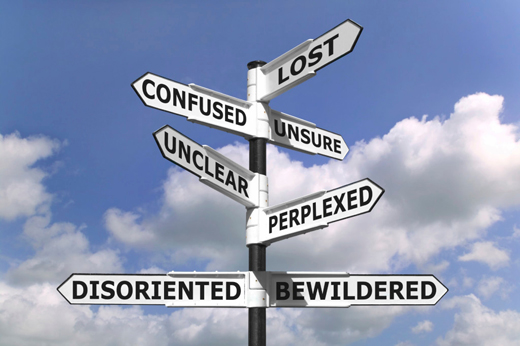
Earlier in the week, I was speaking with a doctor friend of mine — one of the brightest, most accomplished people I know — about the current civic election, and who I would be supporting as candidates in the election. During the course of the conversation, my friend revealed to me that he didn’t know the names of any of the political parties in Vancouver, nor was he aware of the names of any of the current members of Council, or possess the foggiest notion of what any of the parties stood for, what they’d accomplished, what the issues are in this election, and why he — or his lovely bride of some 30 years — should vote one way or the other.
Another friend of mine, someone I often attend movie previews with, although he has some vague notion that Gregor Robertson is our Mayor, doesn’t know what party Mr. Robertson is a member of, is unaware of not just the platforms but the names of the opposition parties, who their candidates are, and why there’s this big hue and cry — among some, including me — to oust Gregor Robertson from municipal government.
At the request of not just the two friends mentioned above, but many, many others in the community, in today and Saturday’s posts on VanRamblings, I’ll publish a primer on civic politics in Vancouver, where I will seek to provide insight into the six political parties that are vying for office, on all three civic bodies — Council, Park Board and School Board — write a bit about the history of these parties, what they stand for, and the primary issues of concern that have been identified by engaged voters.
Given that for most of my political history, dating back to the 1970s, I was (and remain) a member of the Coalition of Progressive Electors, the section on COPE will run longer and in more depth than is the case with the remaining parties seeking office in the 2014 Vancouver municipal election.
Not to mention, to this point in time, VanRamblings has not given COPE it’s rightful due — for the Coalition of Progressive Electors has run a first-rate campaign, setting the agenda for the issues of importance in our city (affordable housing, the economy, openness and transparency at City Hall).
COPE mayoralty candidate, Meena Wong, has in particular acquitted herself passionately and well on the campaign trail, as have all of the candidates COPE has presented to Vancouver voters in Campaign 2014.
In Part 1 of A Primer on Civic Politics in Vancouver, COPE’s history, from the party’s inception til now. On Saturday, readers can expect to find an idiosyncratic take on the Non-Partisan Association, Vision Vancouver, the illustrious Green Party of Vancouver, about which I have written elsewhere:
Isn’t everybody voting Green this time around, given that Green party City Councillor Adriane Carr was, throughout this last term, the conscience of Council, where over the course of those three, very trying years (when Vision Vancouver treated her despicably, and as she maintained her dignity, and her advocacy for the interests of Vancouver citizens), Adriane Carr emerged as not only the most beloved political figure in Vancouver, but across all of western Canada, as well. Make no mistake, the Green Party of Vancouver, in this hard fought municipal election campaign, will garner many, many votes at the polls, from the grateful and appreciative citizens of Vancouver …
… and will write about, as well, the near-independent civic election party, IDEA, and the nascent Vancouver First political party.
![]()
![]()
![]()
Coalition of Progressive Electors (COPE), founded 1968
The Coalition of Progressive Electors (COPE), formed in 1968 — then known as the Committee of Progressive Electors — was mainly a creature of the activist Vancouver chapter of the Communist Party, and the Vancouver & District Labour Council. The VDLC’s Frank Kennedy and gruff, outspoken lawyer Harry Rankin were key figures in shaping the coalition, along with activists from the provincial New Democratic Party, social justice organizations, and an amalgam of left-wing, activist community groups.
These were the days when many of us believed that the contradictions of a corrupt, unjust capitalist economic system were so great that it would lead to the imminent collapse of western society as we knew it (as Marx had long ago predicted), leading to a socialist revolution that was, we were all certain, just around the corner. If I remember correctly, it was current Vancouver city councillor Geoff Meggs — among many, many others — who would be my comrade-in-arms, as we set about to man the barricades.
Even given all of the above, and given our heartfelt belief in the imminent, forthcoming socialist revolution, COPE was formed espousing somewhat more modest goals, which is to say, as a Vancouver municipal party that would effectively organize against the Non-Partisan Association (NPA) — a centre-right political party that had dominated civic politics in Vancouver for nearly three decades. The formation of COPE, and its importance as a voice for working class people, and the most vulnerable in our city, came about in response, as well, to the extreme right-of-centre (some would say, corrupt) leadership of independent Mayor, Tom Campbell.
For most of its history, COPE has had an uneasy relationship with centre-left parties at the municipal level. From 1972 to 1986, COPE competed with The Electors’ Action Movement, which in the 1970s governed the city under prominent federal Liberal, Mayor Art Phillips.
By the late 1970s, a breakaway faction of TEAM, comprised mainly of supporters of the provincial NDP and led by, now former, TEAM city councillor, and future NDP premier, Mike Harcourt formed an electoral alliance with COPE, from which both parties benefited. Led by Harcourt, the coalition governed from the centre and, although it ran a unified slate with COPE with the co-operation and support of the VDLC, Harcourt’s three-person Civic Independents party quite often voted with the NPA, and the remaining TEAM councillors, and against COPE’s more socialist policies.
COPE’S Harry Rankin ran for office more than a dozen times before finally being elected to Vancouver city council in 1966, as the sole independent alderman — and champion of working class people — on a Council dominated by the NPA, where he served for 20 consecutive years, often topping the polls, with great support from across the city, including the west side neighbourhoods of Kerrisdale, Dunbar and West Point Grey, who continually re-elected him to Council to hold the NPA’s feet to the fire.
The Council debates between the NPA’s George Puil and Harry Rankin became legendary — although the perception was that the two were bitter enemies and rivals who hated one another, in fact the two remained friends throughout their long and celebrated political careers, and were always respectful of one another. Ah, for the bygone days of Vancouver politics.
Rankin was so popular that voters not only supported him, but consistently elected a COPE opposition consisting of downtown eastside activist Bruce Eriksen, housing activist Bruce Yorke, and current Vancouver East federal Member of Parliament and deputy leader of the federal NDP, Libbi Davies. When Rankin lost his bid for Mayor in 1986, the provincial NDP and members of the British Columbia Teachers’ Federation staged a coup and ousted Rankin, as the party went on to fallow years on Vancouver’s municipal political scene, electing only Jenny Kwan to Council in the 90s, and COPE stalwart Tim Louis, and Donna Morgan, to Park Board.
All that changed, however, in 2002 when the Non-Partisan Association became riven with division, as a bitter battle between a right-wing faction led by Jennifer Clarke and a moderate faction led by then NPA Mayor Philip Owen all but destroyed the party, creating the conditions for what became a long-awaited COPE victory at the polls, when every candidate running under COPE’s banner was elected, on all three of Vancouver’s civic bodies.

Following the 2002 election, COPE itself became riven with internal conflict.
Going into the 2002 election, COPE had sought a high-profile mayoral candidate, and they found one in Larry Campbell — a former RCMP officer, and coroner in the Vancouver District Coroner’s office from 1981 through 1996, much of Campbell’s eventual success with voters attributed to his charismatic personality, colourful background, and the belief that his life inspired a popular CBC television drama of the day, Da Vinci’s Inquest.
From the outset, following his election to the Mayor’s office, Campbell — a self-described moderate centrist (so moderate, in fact, that the opposition NPA approached him to run as their mayoralty candidate in 2005) — and not previously a member of COPE — refused to caucus with the party he’d run with as mayoral candidate, which as you might well imagine wreaked havoc within COPE, making it nearly impossible to develop a governance programme that might, or might not, find favour with the maverick mayor.
Infighting and internal strife within COPE reached such a fevered pitch that three COPE councillors (dubbed “COPE Lite” or “Diet COPE” by the media) separated and formed a new party, Vision Vancouver, which ran for office for the first time in the 2005 municipal election, choosing former COPE Councillor Jim Green as their mayoralty candidate.
Green lost by a hair’s breadth when dirty politics attributed to winning NPA mayoralty candidate, Sam Sullivan, was accused of / thought to have colluded with an individual by the name of James Green, who placed his name on the mayoral ballot — confusing voters — and ushering in the Sam Sullivan mean-spirited regime at City Hall. COPE, however, won only one seat at the Council table, electing David Cadman to a second term in office.
COPE did not run a mayoralty candidate in 2005, nor in 2008 or 2011, as an uneasy “co-operative agreement” was struck between the nascent Vision Vancouver civic party and a weakened, and disheartened, COPE. In 2011, COPE elected only one candidate to a civic body, Allan Wong at School Board (Wong has since left COPE, & is now running with Vision Vancouver).
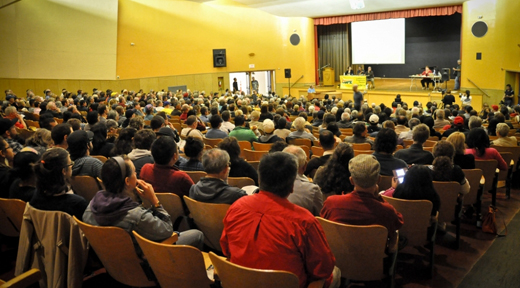
Arising from COPE’s near wipeout at the polls, in April 2012, at a sometimes rancourous COPE annual general meeting, a coalition of left activists — led by former two-term city councillor, Tim Louis; former Green Party leader Stuart Parker, and left activists affliliated with online The Mainlander journal — succeeded in taking over all but four positions (out of 12) on the COPE Executive, the remaining “appeasing four” resigning from COPE in the fall of 2013. Since that time, left coalition activist / COPE exec member Stuart Parker — and many of his ardent supporters — also left COPE.
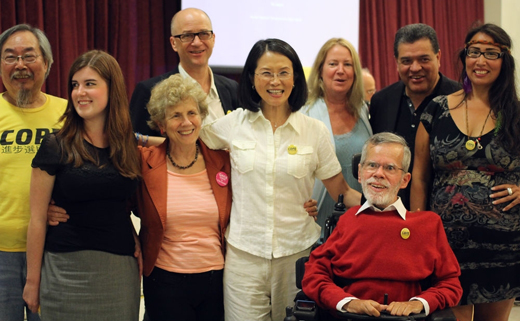
Still and all, returning to its roots as an activist social justice party, in 2014 the Coalition of Progressive Electors is running longtime COPE member Meena Wong as the party’s first mayoralty candidate in 12 years, and COPE members have selected a first-rate slate of dedicated social justice advocates who, although the party will likely not form government following the current civic election (nor, it is probable, elect many candidates to civic office) has set the political agenda in Vancouver’s Campaign 2014.
What does COPE stand for, what are their goals? According to COPE’s constitution, Vancouver’s second oldest municipal party has three aims:
- To unite individuals and groups behind a programme of progressive civic reform;
- To involve Vancouver residents and community organizations in public action in furtherance of their interests and the collective interests of Vancouver; and
- To nominate and endorse candidates for election to civic office in order to promote these purposes, and to provide direction and guidance to such candidates, both before and after they have been elected.
For the first time in a generation, COPE is living up to its constitutional goals, and in 2014 is running on a social justice platform of addressing the affordable housing crisis, as the party’s candidates have set about to advocate for the construction of a City-built and City-owned affordable housing stock. The Coalition of Progressive Electors is the only municipal political party that has placed before the voting public a realistic plan for ensuring the construction and provision of affordable housing.
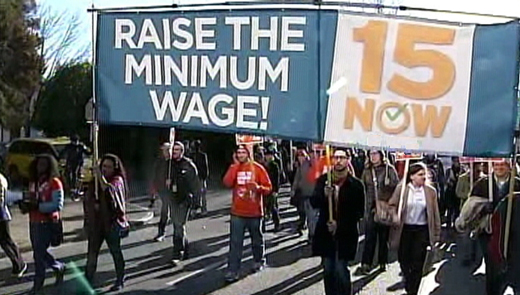
In addition, in the current civic election COPE has campaigned on …
- The adoption of a $15-an-hour minimum wage, already a successful initiative in the city of Seattle, and a referendum item that met with success in five states and numerous cities and counties across the United States in Tuesday’s U.S. election;
- A U-Pass, a $30-a-month universal transit pass programme for all residents of Vancouver, not dissimilar to the universal (U-Pass) programme that has proved a massive success at colleges and universities, which served to increase ridership while reducing fares, congestion, and carbon emissions;
- Transparency and local democracy, including long overdue campaign finance reform, enhanced and respectful neighbourhood consultation and local democratic governance, as well as electoral reform that will allow Vancouver residents to choose between the current at-large voting system, or replace it with a more democratic and neighbourhood-based ward system (as is the case in every municipality, outside of British Columbia, across the great expanse of Canada), among other democratic propositions that have much resonance with the voting electorate of Vancouver;
- Ending renovictions, implementation of a vacant property tax, and the development of guidelines for the retention and creation of affordable live music venues and art spaces, among many other salutary initiatives that would have much appeal to the broadest cross-section of Vancouver’s beleaguered voting public.
COPE is the party of principle, it is the only Vancouver civic party that exists that has as its primary goal working towards a Vancouver based on fairness, equity, and social justice — in other words, a Vancouver for all.
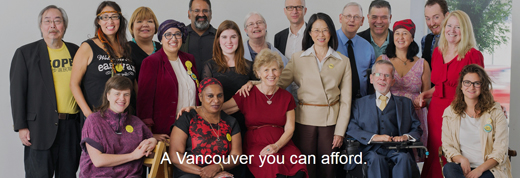
There are some folks who believe that COPE, in being a party of the left, has set unrealistic goals, that it is a party of ideologues with its head in the clouds, out of touch with the concerns of Vancouver’s voting public.
Such a cynical and hopeless notion couldn’t be further from the truth.

In fact, the goals that many of us set back in the 1960s are the goals that COPE continues to fight for today. Perhaps, as a reminder of the principles of what we as citizens once stood for, and the principles that we might once again embrace as we make our journey through the 21st century, let us recall the words of former U.S. Attorney General Robert F. Kennedy, and 1968 candidate for President of the United States — hardly an individual and public figure who anyone would consider to be a radical or a revolutionary, yet who believed, as do the members of COPE, that …
“The purpose of life is to contribute in some way to making things better. Let no one be discouraged by the belief there is nothing one person can do against the enormous array of the world’s ills, misery, ignorance, and violence.
Each time a man stands up for an ideal, or acts to improve the lot of others, or strikes out against injustice, he sends forth a tiny ripple of hope, and those ripples build a current which can sweep down the mightiest walls of oppression and resistance.
Few will have the greatness to bend history, but each of us can work to change a small portion of events. And in the total of all those acts will be written the history of a generation. A revolution is coming — a revolution which will be peaceful if we are wise enough; compassionate if we care enough; successful if we are fortunate enough — but a revolution which is coming whether we will it or not.
There are those who look at things the way they are, and ask why … I dream of things that never were, and ask why not?”
Make no mistake, COPE is the future. Perhaps the future is not now — but if you look for it, you can see it; it is just off on the horizon.
Voters will want to save a vote for COPE, or two, or three or four.
For Vancouver City Council, voters may want to consider such outstanding candidates as Tim Louis, Gayle Gavin, Lisa Barrett, Sid Chow Tan, Keith Higgins and Audrey Seigl. I can tell you, as well, that young, passionate and articulate (also a wonderful writer) social justice advocate Jennifer O’Keeffe has garnered the support of many people of conscience in Campaign 2014, and that my good friend and social justice advocate, Wilson Munoz, will also garner many, many votes at the ballot box.
Read the candidate profiles of the very fine folks who are running with COPE — and for you — in the 2014 Vancouver civic election.
And, please, take the time to look at COPE’s platform, the issues COPE has identified in this vigorous and hard-fought campaign for elected office, and the campaign for change COPE has dedicated itself to in Campaign 2014.